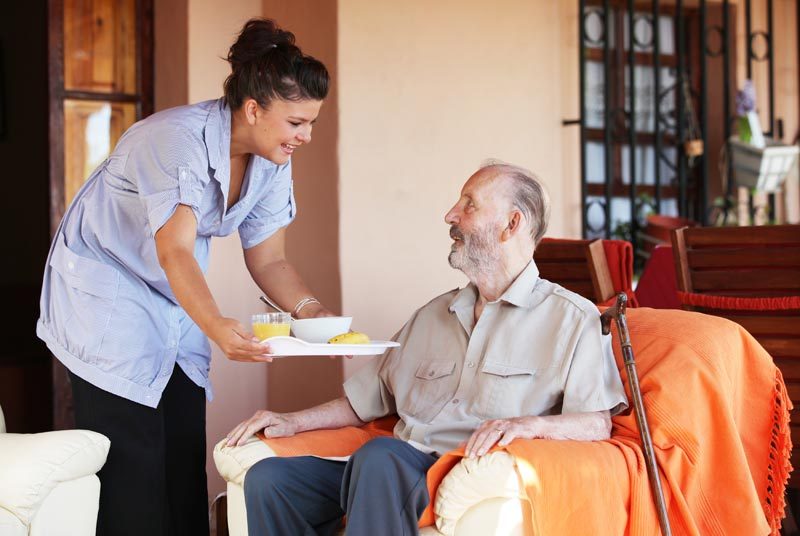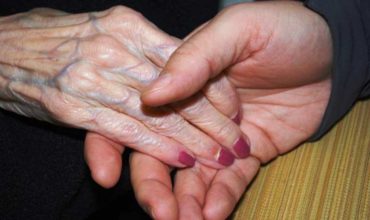Support groups are a fact of modern life-whether for people dealing with divorce or life-threatening disease-and more and more for family caregivers. According to an article in the textbook Psychiatric Nursing, over 20% of Americans have participated in some type of self-help group, and with the introduction of online groups, the percentage is growing rapidly. However, deciding to participate in a support group, or finding one that is right for you, isn’t necessarily an easy thing to do.
The specific reasons behind the growth in support groups for caregivers is worth thinking about because it reflects more than the American cultural tendency to organize into groups. Over the past decade, chronic illness and disability have increased steadily, the life-span of the chronically ill has been extended, the proportion of the population that is elderly has increased, and managed health care has moved much of the responsibility for treatment into the home, and so more and more people are caregivers than ever before. In addition, research has pointed out the real physical and emotional impact of caregiving and confirmed the importance of social support for caregivers, as well as for their loved ones, thus legitimizing the role of support groups in the eyes of health care professionals.
“Today people are being asked to provide treatment at home that would have been unthinkable even three years ago,” according to Dr. Peter Steinglass, Executive Director of the Ackerman Institute for the Family in New York City. “In addition, there is much greater awareness of the burdens facing family caregivers-due in part to organizations such as NFCA. And fortunately, the availability of support groups has increased substantially.” Dr. Steinglass and his colleagues are working to normalize the use of support groups and networks-getting the word out to health care providers that joining a support group should be just as important as regular visits to the doctor, consulting with other specialists, and paying attention to treatment. “We hope to make it the ‘default’ position,” says Steinglass.
What benefits can you expect from a support group? How do you go about finding a support group? What makes a support group effective? What questions should you ask before choosing a group? This guide was developed to help you answer these questions.
Why a Support Group?
There is broad agreement on what support groups offer. Some benefits are:
- A safe haven for sharing feelings in a non-judgmental atmosphere.
- A social outlet where you can make new friends.
- Information about reliable products and services.
- A place to learn coping mechanisms, saving you much trial and error.
- Advice on what lies ahead, so you can anticipate changes.
- Support for your sanity and confidence-you are not alone.
- Help in dealing with family members.
- TLC from people who truly understand your situation.
What Makes a Support Group Effective?
While any given group may or may not work for you personally, there are characteristics that make some groups more effective than others. Keep these in mind as you explore your own choices:
- A caring atmosphere and trust among group members.
- A comfortable mix of participants, so bonds can build.
- Clear structure and purpose; members know why they are there and what will happen.
- Agreement on group rules, including confidentiality.
- A good facilitator.
Many groups rely on trained professionals, but the background of the facilitator is less important than the ability to devise and use an appropriate structure, identify resources, respect group rules, and offer the empathy and concern that members need.
Types of Support Groups
Support groups can be organized in any number of ways. Although effective support groups have similar characteristics, their organizing structures can be very different. It’s important to understand the different forms that support groups can take, so you can decide which best meets your needs.
Condition-Specific Groups. These groups focus on a particular disease/disability/condition. They may be organized within a hospital structure, or by an organization such as the Spinal Cord Injury Network or the Alzheimer’s Association. They may be open to anyone interested in the condition, or designed for sub-groups, such as patients, family members, or a combination of both. The advantage of disease-specific groups is that they offer access to excellent, up-to-date information on the condition, as well as information about local resources.
Caregiver Groups. These groups are founded on the shared experience that comes from being a family caregiver, with all the emotions that accompany that role. Because the focus is on the caregiver-not the disease or condition-caregivers can openly discuss their own difficulties. Caregivers so seldom take the time or find the place to talk about their own needs, so this type of group may be especially valuable.
Relationship-Oriented Groups. This approach focuses on the relationship of a caregiver to the ill or disabled person as the cornerstone. A group might serve parents of special needs children, children of aging parents, or spouses of the chronically ill. The special nature of the relationship that each member shares makes for conversations that bring relief and support.
Family-Centered Groups. Closer to a therapy group than a support group, family-centered groups work with the family as a whole, improving communication and striving to strengthen the entire family as it copes with the illness of one of its members. In most cases, these groups require the structure and leadership that comes from having a professional facilitator with special training.
Advocacy Groups. An additional current trend is for support groups to include some advocacy activities or to connect with advocacy groups. Following the influence of AIDS activist groups and the response of Congress and other funders to organized campaigns for dollars for such issues as breast cancer research, some support groups have taken on advocacy roles. This can be both a healthy outlet for frustration and energy, as well as a way to hasten research, educate the media about a particular issue, or influence legislation.
Online Groups. Online groups provide many of the same benefits as traditional support groups, but have special characteristics. Worldwide self-help communities are possible, access to information is essentially unlimited, and connections can be made from your home. And for someone in a rural area or dealing with a rare condition, electronic connections may be the only way to be in touch with others sharing your struggle.
Relief from isolation has always been a principal benefit of groups.
A caregiver who cannot leave home can be a contributing member of an online group at any time and in any place.
Questions to Ask
Remember, joining a support group is an experiment. If one group does not work for you, try another, or try the same one again when the time seems better. Selecting a group that works in a way that is comfortable for you, and knowing what to expect, makes a big difference. Here are some questions to ask:
Who sponsors/runs the group?
A hospital, church, or established organization sponsor is a pretty good indicator that there will be an appropriate structure and reliable operation.
Who is the facilitator? Talk to the leader if possible, and outline your concerns and interests. See how it feels. Ask about the leader’s background and training, and how long the group has been running.
What is the group’s organizing principle? If you are newly dealing with a disease or condition, you may need information and resources that a condition-specific group can offer. If you have been caregiving for a long time, you may need support and a place to let down your hair more than you need information.
What is the makeup of the group? Where and how often does it meet? What is expected of you-is participation required, or can you just listen? What are the rules of confidentiality?
It’s About Caring
As a long-time support group facilitator I used to know once said: “People who call me don’t usually know what they are looking for. They just hurt and know they need something. I talk with them for a while, and if I think my group can help, I invite them to a meeting, and I always call after the first visit. I encourage them to come back because the first time may have been too unsettled to really get anything out of it.
Sometimes I suggest they consider more direct professional help, if the need seems too great for the group to handle. Mostly, I want them to know I care about them. I think caring is largely what support groups are all about.” I could not agree more.
Nancy Carson is a freelance writer and a long-distance (coast-to-coast) caregiver. She lives in Alexandria, VA.






